Join us on Monday 9, Tuesday 10 and Wednesday 11 November for the Finding Ada Virtual STEM Conference will be a 29 hour extravaganza of talks, workshops, Q&As and more, starting at 9am in Wellington, New Zealand, and continuing through until 5pm in Seattle, USA.
We have a variety of talks, workshops, Q&As, interviews, panel discussions on the themes of Career Development, Policy & Advocacy, and Widening Participation. So whether you are a woman in STEM who wants to develop her career, a business leader or HR exec, an educator or parent, or an advocate or community organiser, we’ll be running sessions for you!
Headline talks
Caroline Walker
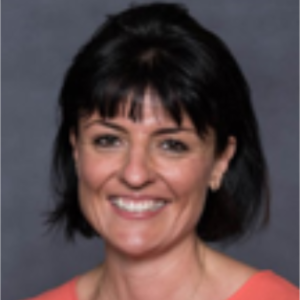 Managing director and EMEA head of diversity and inclusion at J.P. Morgan
Managing director and EMEA head of diversity and inclusion at J.P. Morgan
DeLisa Alexander
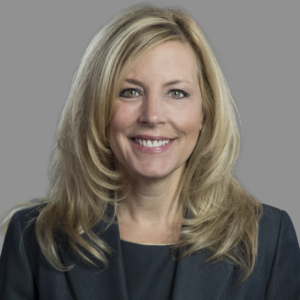 Executive vice president and chief people officer at Red Hat
Executive vice president and chief people officer at Red Hat
Invoking empathy and policy for effective diversity and inclusion advocacy
The work of changing hearts and minds should begin with creating the empathetic moment. In this presentation, Red Hat’s Chief People Officer DeLisa Alexander will discuss how the organisation has advocated for greater diversity and inclusion by strategically invoking empathy to create a willingness to behave differently. Alexander will also address policy changes and stakeholders creating often-helpful pressure on organisations to get diversity and inclusion right, and how savvy diversity and inclusion practitioners can leverage these trends to deliver change for their organisations.
Chi Onwurah MP
Member of Parliament for Newcastle upon Tyne Central
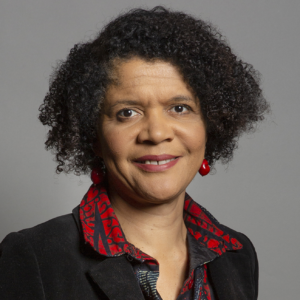 Chi Onwurah MP talks to Suw Charman-Anderson about her realisation at aged 9 that she wanted to be an engineer, her 23 year career as an electrical engineer and some of the projects she worked on, her transition into politics, and her work as Shadow Minister for Science, Research and Digital. She also talks about why we need more women in STEM to move into politics, the value of her engineering experience in her current job, and the challenges she’s faced as a black woman in engineering and now a black woman in politics.
Chi Onwurah MP talks to Suw Charman-Anderson about her realisation at aged 9 that she wanted to be an engineer, her 23 year career as an electrical engineer and some of the projects she worked on, her transition into politics, and her work as Shadow Minister for Science, Research and Digital. She also talks about why we need more women in STEM to move into politics, the value of her engineering experience in her current job, and the challenges she’s faced as a black woman in engineering and now a black woman in politics.
Panellists
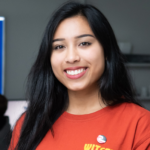
 Indigenous Women in STEM
Indigenous Women in STEM
- Karlie Noon, astrophysicist
- Aleisha Amohia, software developer
- Johnnie Jae, journalist & technologist
- Shawn Peterson of Native Girls Code
- Eteroa Lafaele, software engineer

 Our panellists will be talking about their experiences as indigenous women, how they got into STEM, the issues specific to their indigenous communities when it comes to encouraging girls into STEM, the role of organisations and institutions in supporting indigenous women in STEM and more.
Our panellists will be talking about their experiences as indigenous women, how they got into STEM, the issues specific to their indigenous communities when it comes to encouraging girls into STEM, the role of organisations and institutions in supporting indigenous women in STEM and more.


 Can Children’s Books Encourage More Girls into STEM?
Can Children’s Books Encourage More Girls into STEM?
Featuring:
- Miriam Tocino, author Zerus & Ona
- Kate Wilson, managing director of Nosy Crow
- Lisa Rajan, author Tara Binns series
- Dr Sheila Kanani, author of How to Be an Astronaut and Other Space Jobs
 Our panellists will be asking what role books play in helping girls build an identity that includes STEM, whether books can really counter gender stereotypes, how we represent multiple axes of diversity, and talk a bit about how they came to write books for children.
Our panellists will be asking what role books play in helping girls build an identity that includes STEM, whether books can really counter gender stereotypes, how we represent multiple axes of diversity, and talk a bit about how they came to write books for children.

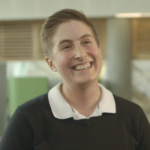 Mitigating the Impacts of COVID-19
Mitigating the Impacts of COVID-19
Featuring:
- Tara Scott, professional head of track at Network Rail
- Joeli Brearley, founder of Pregnant Then Screwed
- Dr Nisreen Alwan, associate professor in public health at the University of Southampton
- Mariam Crichton, Managing Director at 4 Earth Intelligence
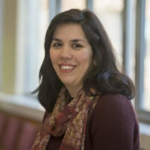
 How are women’s jobs and careers being affected by the COVID-19 pandemic? In academia, fewer women are submitting grant proposals and scientific papers, and in industry women’s jobs have been hit hard and mother especially are having to do more domestic work, so what is the long-term damage that’s being done? And how do we mitigate it?
How are women’s jobs and careers being affected by the COVID-19 pandemic? In academia, fewer women are submitting grant proposals and scientific papers, and in industry women’s jobs have been hit hard and mother especially are having to do more domestic work, so what is the long-term damage that’s being done? And how do we mitigate it?

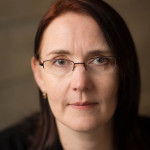 Launching and Running an Advocacy Group
Launching and Running an Advocacy Group
Featuring:
- Suw Charman-Anderson, founder of Finding Ada.com
- Vanessa Vallely OBE, founder of WeAreTechWomen
- Elisabeth Holm, founder of Sisterhood of Native American Coders
- April Moh, executive sponsor of SUSE’s Women in Tech Network

 We’ll be talking to our panellists about why they decided to create an advocacy group, what their challenges have been, and their goals for their organisations. We’ll also be talking about using social media to grow communities, different financial models for community organising, and fundraising.
We’ll be talking to our panellists about why they decided to create an advocacy group, what their challenges have been, and their goals for their organisations. We’ll also be talking about using social media to grow communities, different financial models for community organising, and fundraising.
Talks
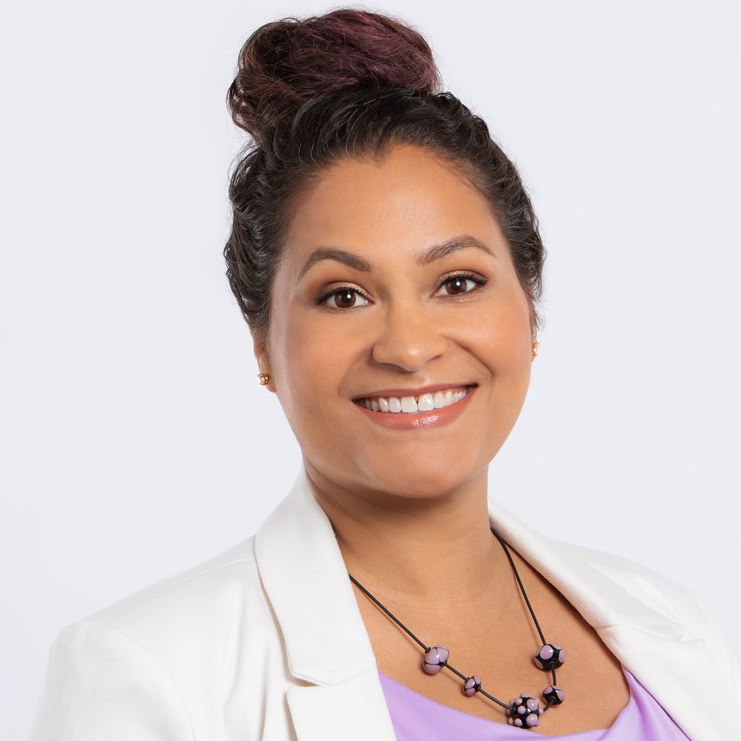 Revelations from Our Pandemic Pivot: How Rapidly Deploying Virtual Delivery Energized Our Learning Community – Amy Cliett
Revelations from Our Pandemic Pivot: How Rapidly Deploying Virtual Delivery Energized Our Learning Community – Amy Cliett
Stats after 90 days for TechGirlz’ “Pandemic Pivot” to virtual delivery: workshops demand rose 60%; 2/3 virtual workshops had waiting lists; and, numbers of girls and volunteer instructors rose in U.S. regions without in-person workshops. In this session, TechGirlz’ Director Amy Cliett walks through their rapid, successful pivot to virtual delivery and shares five revelations along the way that reveal, even at a distance, connecting can create and deepen community.
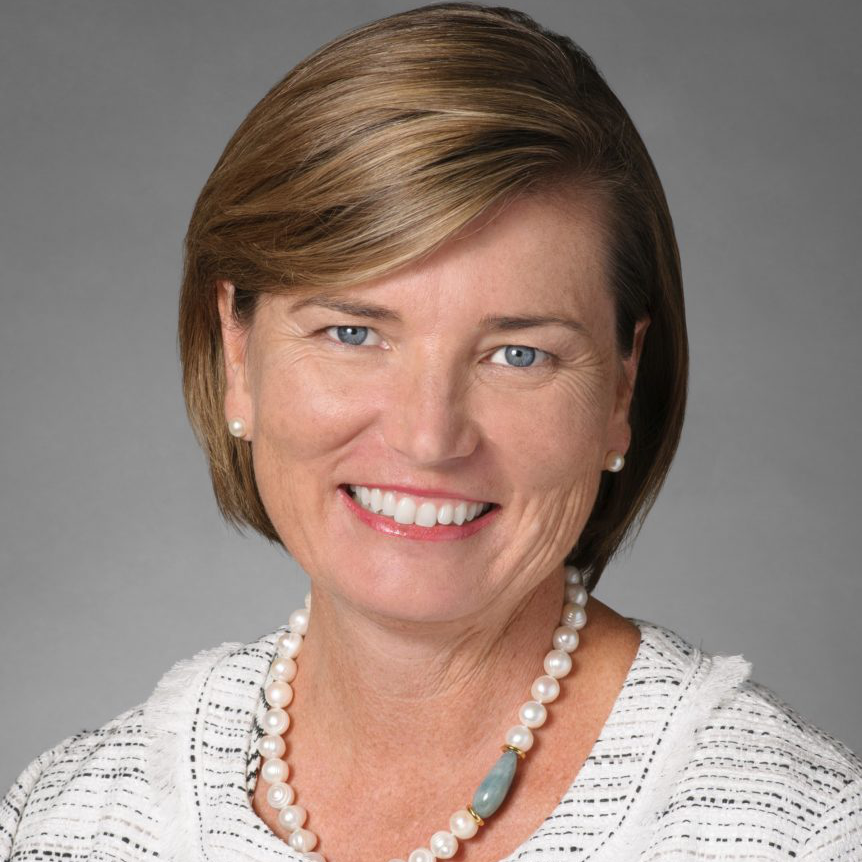 5 Keys to a Successful “Rebellion of One” – Amy Kardel
5 Keys to a Successful “Rebellion of One” – Amy Kardel
Research reveals that the most productive companies have greater gender diversity than competitors. Yet, women remain under-represented in business leadership. In fact, studies show one in five women say they are the only woman (or among few women) “in the room” at work. How can women in tech blaze new pathways to leadership positions? Amy Kardel, a VP at the largest trade association for the $5-trillion global IT ecosystem, says you stage a “Rebellion of One.”
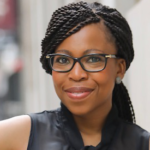 Widening participation in STEM, a catalyst to scaling innovation and social mobility – Boitshoko Phalatse
Widening participation in STEM, a catalyst to scaling innovation and social mobility – Boitshoko Phalatse
This session will look at marrying old school methodologies with new school technologies and adaptation into digital educational platforms and resources. Our use of coding platforms to promote innovation and collaboration. My believe is that technologies such as case study simulations and AR/VR will expand the interest of STEM as a career choice within young girls in rural communities and reach the desired social breakthrough and advancement.
 Roll up! Roll up! Using circus to increase involvement and ambition of girls in STEM – Dea Birkett
Roll up! Roll up! Using circus to increase involvement and ambition of girls in STEM – Dea Birkett
A decade ago, 11 per cent of women were engineers. Today, that figure is the same. In the meantime, £££millions have been spent on initiatives to shift female participation in STEM. Few work. So at Circus250 we decided to take a very different approach, using the accessible art form of circus to inform and enthuse girls and women about science. This is the story of how and why we did it.
STEM without boundaries – Deborah Dormah Kanubala 
Social media has helped reach out to millions of people, however, it still leaves out a chunk of students with no access to the internet uninformed about current STEM trends. It was reported by UNESCO that nearly 82% of students in Sub-Saharan Africa lack access to the internet which means a large number of these students remain uninformed. This talk, therefore, would focus on how educational organisations and women STEM groups could reach out to students who lack access to the internet.
 Relauncher – Come back with a plan! – Deepthi Karuppusami
Relauncher – Come back with a plan! – Deepthi Karuppusami
20 Million Indian women quit their jobs between 2004-20012. Around 65-70% of the women who quit never return to work at all. ‘As a woman – How can I overcome these challenges? How can networking help me ? How do I prepare for a comeback after a short/long break? These are some of the themes and Questions that I would like to answer using a framework to compartmentalise the challenges and help the audience frame the next steps of their career.
N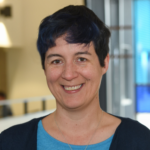 ever too young – the importance of challenging science stereotypes in primary school – Ellie Highwood
ever too young – the importance of challenging science stereotypes in primary school – Ellie Highwood
Organisations have been trying to get more women into science for decades, yet numbers remain low, perhaps because gendered views about science start to fix at age 5-7 whilst most “women into STEM” initiatives focus on KS3+. The talk will discuss the evidence for needing to start younger, and discuss how to increase “science capital” for all at primary school level using experiences as a STEM ambassador in primary schools, building science capital from EYFS to Year 6.
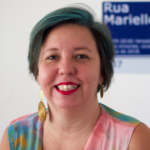 Raising women’s voice with Somos Cintia Podcast – Erika Pessôa
Raising women’s voice with Somos Cintia Podcast – Erika Pessôa
Somos Cintia is a podcast that has women, technology and gender equality as main topics in all episodes. This talk will discuss how this initiative is contributing to give and raise women’s voice, value their works, experiences and researches; how it has been inspiring other women to talk, tell their stories and/or pursuing a computer career. Also, it will share some challenges and tips on how to make a podcast in a “so specific” topic from scratch without any financial or material support.
 Increasing women participation in STEM – Fatimah Almathami
Increasing women participation in STEM – Fatimah Almathami
This talk covers the causes of under-representation of women in STEM. The need to identify the causes deeply to find holistic solutions. And then how to increase women participation in work through a successful pathway of recruitment strategies.
Building power as a female leader – Jan Molino 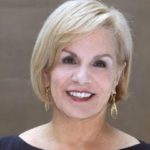
So how do you get into the leadership role and be perceived as a leader? This talk will be about the power of building strategic networks: The biggest key to building power is to surround yourself with powerful people—YOUR NETWORK IS YOUR POWER! Learn the critical areas of power in relationships, social networks and influence, and communications. Participants will learn how to build a Power Networking Leadership Toolkit.
 Empowering every woman: supercharging STEM advocacy with WORK180 – Louise Fowkes
Empowering every woman: supercharging STEM advocacy with WORK180 – Louise Fowkes
Find out how to supercharge your personal branding and storytelling, become an advocate for STEM and empower every woman to find a workplace where they can thrive.
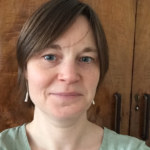 Let Toys Be Toys: how to challenge gender stereotypes in childhood – Olivia Dickinson
Let Toys Be Toys: how to challenge gender stereotypes in childhood – Olivia Dickinson
Explanation and introduction of the Let Toys Be Toys campaign, why it exists, what’s been achieved since 2012, why it *still* needs to exist in 2020, and how challenging sexism and gender stereotypes need to start in childhood.
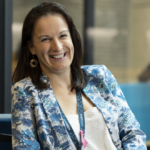 Increasing the Sisterhood in Tech: A Call to Action to the Village – Ruth James
Increasing the Sisterhood in Tech: A Call to Action to the Village – Ruth James
They say it takes a village to raise a child, well, this is my call to the global village to increase the number of women entering the technology sector. I will share some of the fundamentals i’ve learnt over my time in tech outreach to encourage more girls into tech: * Showcasing what it really looks like to work in tech. * Championing girls into tech. * Connecting with opportunities locally and online. * Building confidence in young women so they may continue to stay curious about tech.
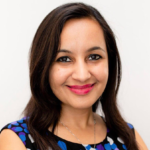 No Woman Left Behind: Planning for Intersectionality – Shailvi Wakhlu
No Woman Left Behind: Planning for Intersectionality – Shailvi Wakhlu
When we think about gender-issues, we cannot ignore intersectionality. Women face all the challenges that women in STEM usually do, and also face additional challenges based on their race, sexual orientation, nationality, disability, education etc. We have to actively prioritise creating a plan to support these women, and commit to advocating for them in a consistent manner. As a community, it is up to us to make sure we don’t stop the good fight until all marginalised women have equity.
Mentoring: a win-win situation – Shraddha Surana 
During the initial days (years to be honest), I remember thinking “if only I knew this earlier, I would have done things better”. I would have developed faster as a professional, had I some insight or mentor to guide me. This is the main reason I started mentoring & guiding students. Both on data science projects and in general about the industry, about confidence & going about things. You can always be a mentor to someone and the benefits reaped are multi-fold for both the mentor and mentee!
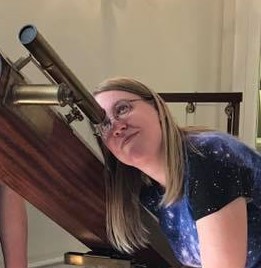 Citizen Science: a way to widen participation? – Alice Sheppard
Citizen Science: a way to widen participation? – Alice Sheppard
What is citizen science? We’ll look at some examples of scientific discoveries and activity by people who aren’t employed as scientists – and find out how we can use this increasingly popular activity to lower the barriers for women.
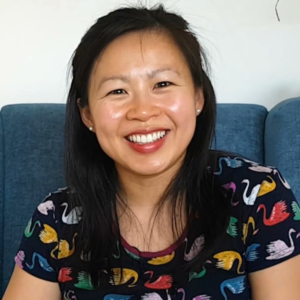 The Secret to Behavioural Change – Suki Xiao
The Secret to Behavioural Change – Suki Xiao
A lot of us think behavioural change is about changing our behaviours without realising the need to change ourselves. In this talk, Suki will distill the most fundamental information about habit formation. She will share her top tips for creating lasting change through a personal story of how she tamed her harsh self-critic.
 Bridging the Gender Divide in Tech: 1 Technologist at a Time – Tina Vinod
Bridging the Gender Divide in Tech: 1 Technologist at a Time – Tina Vinod
The gender divide in tech is a reality. Almost 63% of women in tech who re-enter the industry feel that a break was detrimental to their career progression. This talk will cover VAPASI the ThoughtWorks’ certified free technical women returnee program for women technologists on a career break. The training program is designed for women who are keen to get back to tech. It has a holistic approach to inclusion that goes beyond just training to empowering and driving positive social change.
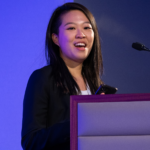 How I got into engineering – Ying Wan Loh
How I got into engineering – Ying Wan Loh
This talk is aimed at young people who might be considering engineering as a career. I will talk about my (sometimes not very straightforward) journey into engineering. I will share some of the exciting projects I have worked on, from space drilling to jet engines, and paint a picture of what engineering looks like in the 21st century.
 Telling your Science Story – Ginny Smith
Telling your Science Story – Ginny Smith
We all love stories, and science is full of them. Storytelling can help upgrade your public engagement, whether that’s blogging, public speaking or TikTok. These skills might even help pep up your next seminar or keep that cute stranger’s attention in the pub! This session will guide you through the principles of story-telling, and how to apply them to your research. You will learn to consider the audience, and leave confident you can tell your science story in an engaging and effective way.
 Effective Virtual Presentations – Katerina Arzhayev
Effective Virtual Presentations – Katerina Arzhayev
Presenting virtually is nothing at all like being in a room with a ppt presentation. We no longer have the ability to control the experience our audience is getting, so how can we continue being effective and engaging presenters? In this talk, Katerina will present the best tips and tricks for intentionally using your face, body, and presentation content to make your point and get your audience as passionate as you are about the subject matter of your presentation.
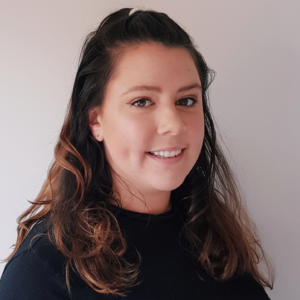 Using Social Media to Increase STEM Engagement Amongst Women – Alice Clark
Using Social Media to Increase STEM Engagement Amongst Women – Alice Clark
An analysis of how we can leverage social media to our advantage at each stage of the women in STEM pipeline.
Shorts
 Steam Powered Flying Horses – Alan O’Donohoe
Steam Powered Flying Horses – Alan O’Donohoe
Hear how we adapted our “Ada bit-by-bit” activity to suit an unplugged engineering workshop for use with children in the Science Museum in Bradford, UK. Children aged 7 – 11 collaborated in pairs to create, develop and improve their models of a ‘flying horse’ using basic materials, inspired by one of Ada Lovelace’s inventions.
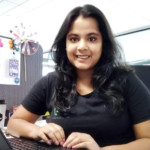 Ten soft skills to stand out in the Software Industry – Anisha Swain
Ten soft skills to stand out in the Software Industry – Anisha Swain
In STEM, female students often get cowed down by a plethora of opportunities in hundreds of domains and look out for the correct choice that is going to make them stand out in the software industry. Now with all the blockers ranging from college non-cooperation to limited exposure, the female students need to be efficient enough to choose the correct and most importantly the safest approach that is going to give them maximum success. The solution is SOFT SKILLS.
 Mentorship Under the Microscope – Cassandra Lee
Mentorship Under the Microscope – Cassandra Lee
Featuring the stories of my two mentees, this brief talk covers the benefits of mentoring and how to have a good mentoring experience.
 The role of learned societies in widening participation, through the use of role models – Dr Sheila Kanani
The role of learned societies in widening participation, through the use of role models – Dr Sheila Kanani
Organisations like the Royal Astronomical Society (RAS) can play a role in widening participation by encouraging girls and women in education, and supporting women in academia or industry. One intervention to help break down stereotypes is to provide role models from the past and present day. We focus on solar physicist Annie Maunder, namesake of the RAS medal for outreach, and set the work of publicising role models against the context of more challenging interventions that we endeavour to do.
 Across is Not Down — A Lifelong Career as an Individual Contributor – Esther Massimini
Across is Not Down — A Lifelong Career as an Individual Contributor – Esther Massimini
You don’t have to be in management to have a successful career! I’ll describe how to navigate and conquer minefields, and describe success strategies–from identifying compatible managers to knowing what you are NOT willing to do to make money. I’ll end with a focus on using conferences and learning to continuously expand your career circle. You’ll leave knowing that a lateral career can be both fulfilling and lucrative, but even more importantly: possible.
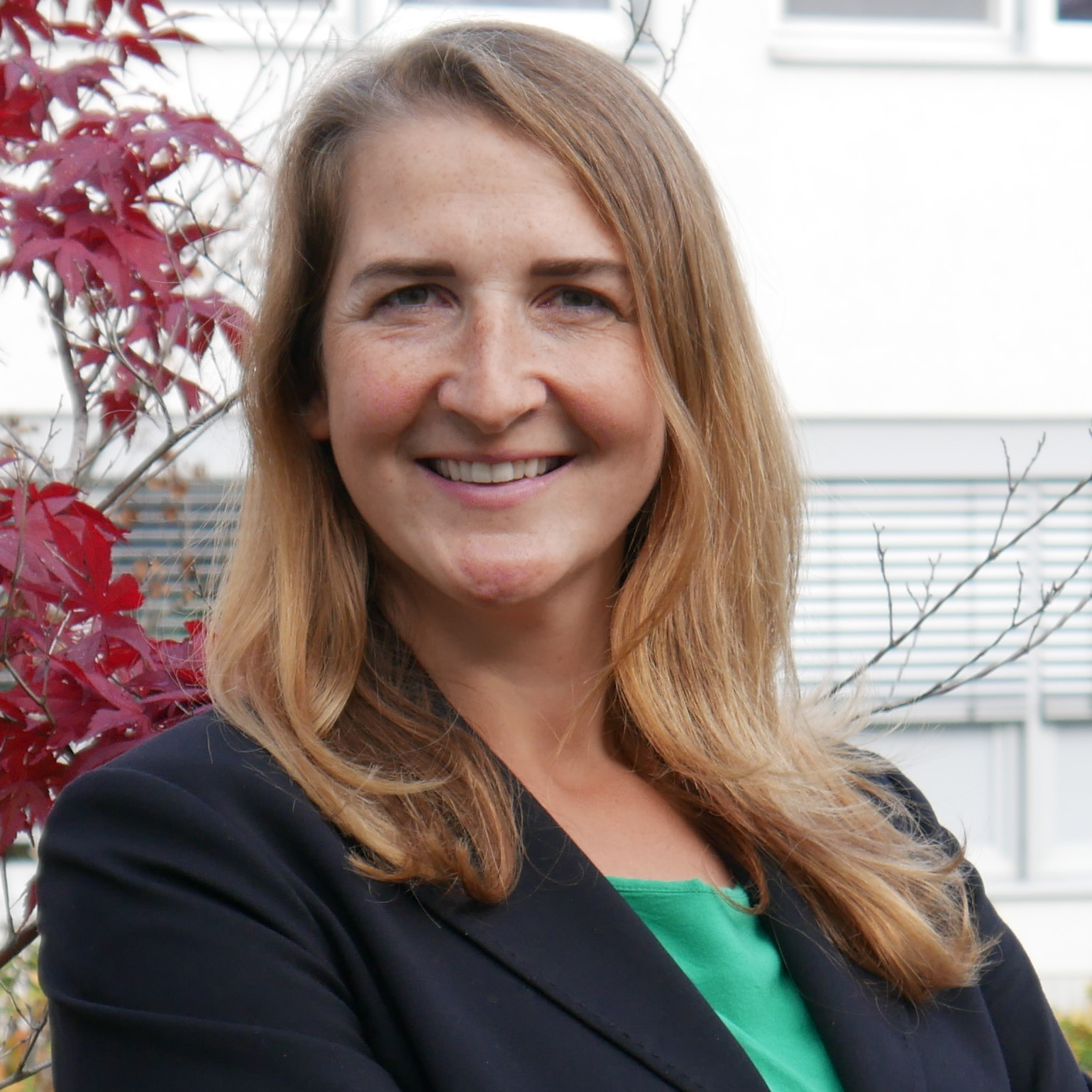 How we introduced the Women’s Breakfast Club at the office – Kathrin Goldammer
How we introduced the Women’s Breakfast Club at the office – Kathrin Goldammer
My business is energy technology, and it’s hard to develop a diverse and gender-balanced team in this field. At RLI, we’ve achieved this goal (yay!), and still we found it necessary to introduce a new format last year so that women of all levels can get together and discuss topics according to their own agenda: The Women’s Breakfast Club. In this talk I will tell the story of why we introduced the meeting, who turned up, how it turned out and how it progressed over time.
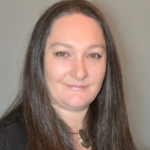 The Wonder Years: Starting STEM Early – Kristina Robb
The Wonder Years: Starting STEM Early – Kristina Robb
An overview of our early years STEM project which is targeted at 3-5 year olds and their families, whilst involving the wider community. Young children’s sense of wonder about the world is enlisted to develop their STEM skills and knowledge and increase family involvement. The project encourages children and families from areas of multiple deprivation to be aware of the career paths that are available to them through STEM, increasing diversity in our future workforce.
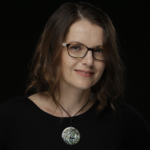 Addressing the other side of the equation – Malgorzata Lagisz
Addressing the other side of the equation – Malgorzata Lagisz
What we grow up seeing is what we may consider as normal. This matters for both girls and the boys, affecting their career choices and attitudes. A lot has been said and done about encouraging more girls into STEM. Next, something has to be done for the boys to see that girls have equal potential and abilities, so they do not drive girls out of STEM jobs. One way is, I argue, by addressing the long-standing overrepresentation of men in lists of famous scientists.
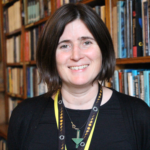 The role of learned societies in widening participation, through the use of role models – Sian Prosser
The role of learned societies in widening participation, through the use of role models – Sian Prosser
Organisations like the Royal Astronomical Society (RAS) can play a role in widening participation by encouraging girls and women in education, and supporting women in academia or industry. One intervention to help break down stereotypes is to provide role models from the past and present day. We focus on solar physicist Annie Maunder, namesake of the RAS medal for outreach, and set the work of publicising role models against the context of more challenging interventions that we endeavour to do.
 Every Company is Now a Tech Company – Tracey Welson-Rossman
Every Company is Now a Tech Company – Tracey Welson-Rossman
There was a time when the primary role of leaders companies was management. The tech required for a company was siloed in an “IT department,” treated as a cost center than a source of competitive advantage. We’ve entered a period of upheaval, driven by connectivity, AI, automation & remote work. It is time, especially during Covid-19, that we realize every company is now a tech company. Join Tracey as she reviews what this means for the future of work & what a career in tech means.
